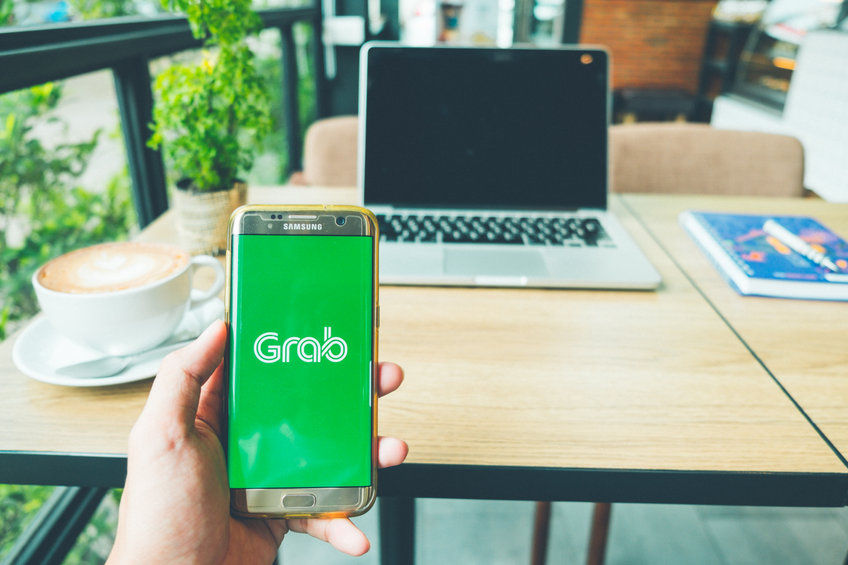Uber Technologies (UBER) stock has done well this year, surging by over 28% and reaching its all-time high. It has risen by 146% in the past five years, giving it a market cap of $166 billion, making it the biggest mobility company in the world.
Uber has achieved this growth through its global expansion and by moving to other industries like food and grocery delivery. This model is significantly different from Lyft, which focuses on ride-hailing in the US.
Uber has also been wise to exit some of its unprofitable markets early. For example, it exited the Chinese market in 2016 after facing substantial competition from Didi. It acquired a 12.8% in Didi, a company now valued at over $23 billion.
Uber also exited some Southeast Asian countries and took a stake in Grab Holdings (GRAB), a company valued at $14 billion.
What is Grab Holdings?
Grab Holdings is a large company that provides a super app used by millions of users in the Southeast Asian region, one of the fastest-growing places globally. It is available in countries like Singapore, Malaysia, Indonesia, Vietnam, Thailand, and the Philippines, which have a cumulative population of over 677 million people.
Grab uses the same business model as Uber. Its app lets users request for rides and then it takes a cut from all transactions.
Additionally, the firm has expanded its business to include deliveries and digital financial services. For example, in its app, one can pay utility bills, pay online and in stores, buy insurance, and even save.
Grab, therefore, has become a super app, where millions of people find numerous services, without the need for downloading other platforms.
Most importantly, while all its services are highly competitive, the company has a commanding market share. For example, its ride-hailing business has an approximately 75% market share. Its food delivery business also has a substantial share.
The benefit of having a commanding share is that it can increase prices without losing customers. Also, it can offer more services without spending substantial sums of money on marketing.
Grab’s business is growing
Grab’s business has done well over time as its revenue growth has continued. However, its stock remains significantly below its all-time high as investors focus on its huge losses and the fact that it has little growth prospects internationally.
Grab’shares peaked at $18 in January 2021 and has tumbled to below $4, bringing its market cap from $22 billion to $14 billion. This crash happened even as its annual revenue moved from $469 million in 2020 to over $2.3 billion.
The most recent results showed that Grab’s business was still growing, albeit at a slower pace than in the past. Its revenue grew by 17% in the second quarter to $664 million as its on-demand Gross Merchandise Volume (GMV) rose by 13% to $4.4 billion.
Uber, on the other hand, reported quarterly revenue growth of 16% to over $10.7 billion, meaning that the two have similar growth rates.
Grab’s financial services business is seeing strong growth. Customer deposits in its application rose by 52% to $730 million, while the amount of loans disbursed last quarter stood at $500 million. Its mobility revenue rose to $247 million, while its financial services figure rose to $60 million.
Grab is on path to profitability
A key concern for Grab has been its substantial losses over the years. It had a net loss of $3.7 billion in 2019 followed by $2.6 billion in 2020 and $3.4 billion in 2021.
Recently, however, there have been signs that the company is on a path to profitability. Its net loss narrowed to $1.6 billion in 2022 followed by $485 million in 2023. As such, if this trend continues, it may turn profitable in 2025 and continue growing.
The next key catalyst for the Grab stock price will be its earnings, which are scheduled on November 8. Analysts expect that its revenue will come in at $691 million, a 12.4% increase from the same period last year.
For the year, analysts expect that its revenue will be $2.74 billion, a 16.4% increase from $2.36 billion. It will then grow to $3.2 billion in 2025.
Read more: As Uber stock thrives, two competitors are holding merger talks
Grab stock price analysis
Grab chart by TradingView
The monthly chart shows that Grab Holdings’ share price has moved sideways in the past two years.
The stock has formed a rising wedge chart pattern, a popular bearish sign in the market. Also, it has formed a bearish flag chart pattern. Therefore, there are rising odds that it will have a bearish breakout, with the next point to watch being at $2.27, its lowest point in 2022.
In the near term, however, more gains will be confirmed if it moves above the key resistance point at $3.90, its highest point this year.
The post Uber stock surged to ATH: Will Grab Holdings do the same? appeared first on Invezz

